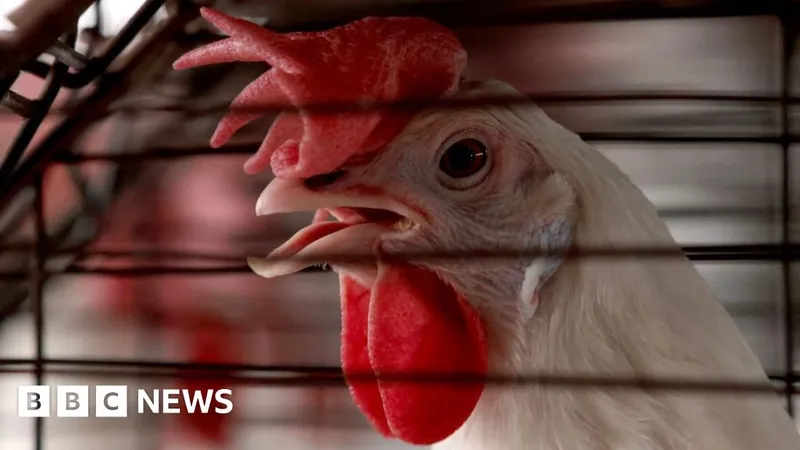
Alarming Bird Flu Case in Missouri Sparks Concerns Over Human Transmission
2024-09-28
Unexpected Development in Missouri
In an unexpected development, four healthcare workers in Missouri are experiencing mild respiratory symptoms after coming into contact with a patient diagnosed with bird flu, health officials revealed on Friday. This brings the total number of symptomatic healthcare workers to six, significantly raising alarms about the potential for human-to-human transmission of the virus.
Notable Patient Case
The patient in question is particularly notable as they are the first confirmed case in the U.S. this year with no known animal exposure—a concerning fact that has prompted officials to scrutinize the implications of this case further. Thankfully, the patient has recovered, but the circumstances surrounding their infection are provoking serious questions among health experts.
Testing and Symptoms
The Centers for Disease Control and Prevention (CDC) confirmed that of the symptomatic workers, only one was tested for the bird flu virus and returned a negative result. Despite having had high-risk contact with the patient and later developing mild symptoms, initial assessments indicated that the timing of their illness would render PCR testing unreliable, thereby complicating efforts to track the outbreak.
Antibody Testing
Interestingly, although the symptomatic healthcare workers did not receive timely testing, they, along with a household member of the patient who also showed symptoms, have provided blood samples for antibody testing. However, the results of these tests are still awaited, leaving vital questions unanswered.
Rarity of Bird Flu Cases
Bird flu, or avian influenza, is notoriously rare in human populations, with only 14 confirmed cases across the United States this year alone. However, the case in Missouri, particularly as it lacks ties to animal exposure, has sparked a critical examination of the state’s public health protocols. Michael Osterholm, the director of the University of Minnesota’s Center for Infectious Disease Research and Policy, expressed his concerns about Missouri's slow response in identifying potentially exposed individuals. 'Public health credibility is really on the line here,' he stated, emphasizing the urgent need for effective tracking and response strategies.
Context and Broader Implications
Notably, all other bird flu cases reported this year have involved farm workers linked to outbreaks in poultry or dairy facilities. As experts continue to evaluate the situation, the CDC reassures the public that the overall risk remains low.
Cattle and Cross-Species Infections
However, it is crucial to note that instances of bird flu among cattle have surged in the U.S. this year. Following a notable outbreak in March, cattle in 14 states have been impacted, underscoring the increasing relevance of cross-species infections and the potential for wider implications within animal agriculture. As health officials navigate these challenges, vigilance in monitoring symptoms and ensuring safety protocols across both human and animal populations becomes more pressing than ever.
Conclusion
Stay tuned for updates as this story develops!



 Brasil (PT)
Brasil (PT)
 Canada (EN)
Canada (EN)
 Chile (ES)
Chile (ES)
 España (ES)
España (ES)
 France (FR)
France (FR)
 Hong Kong (EN)
Hong Kong (EN)
 Italia (IT)
Italia (IT)
 日本 (JA)
日本 (JA)
 Magyarország (HU)
Magyarország (HU)
 Norge (NO)
Norge (NO)
 Polska (PL)
Polska (PL)
 Schweiz (DE)
Schweiz (DE)
 Singapore (EN)
Singapore (EN)
 Sverige (SV)
Sverige (SV)
 Suomi (FI)
Suomi (FI)
 Türkiye (TR)
Türkiye (TR)